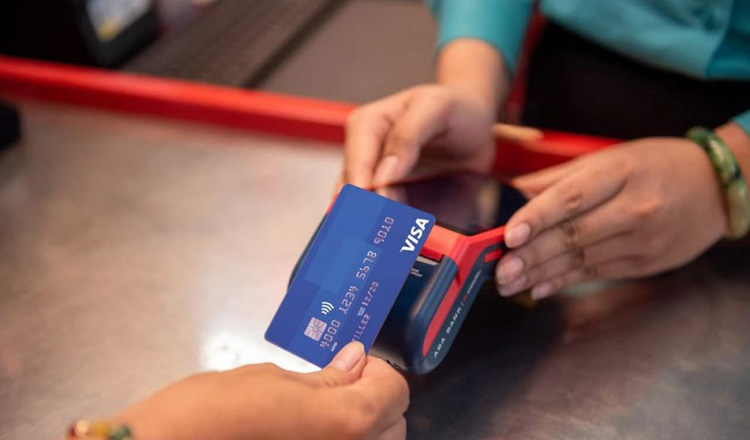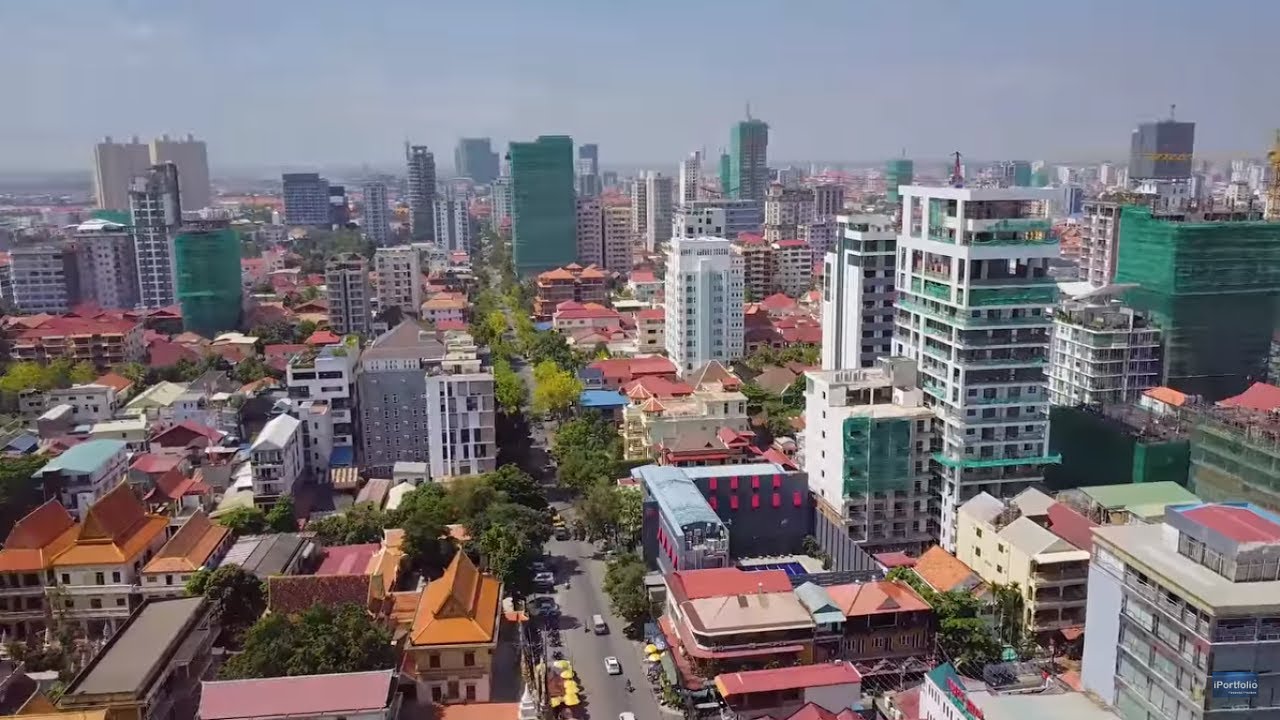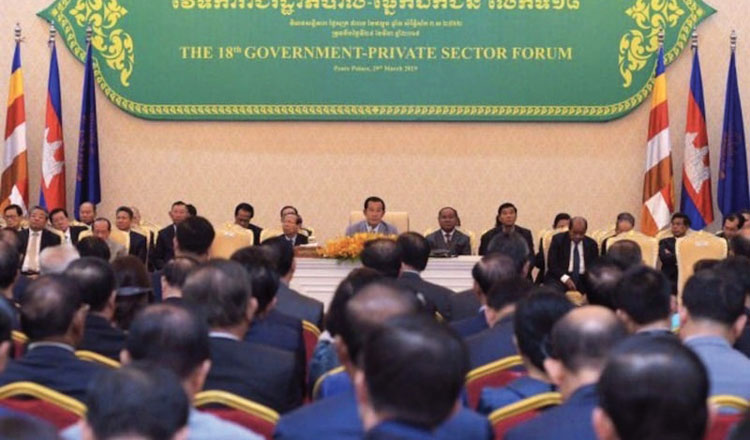Cashless Cambodia boosted by pandemic
 The pandemic has invigorated the Kingdom's transition to a cashless society. Cambodians are reporting that they are more likely to adopt fintech solutions, according to a recent Visa survey. Supplied
The pandemic has invigorated the Kingdom's transition to a cashless society. Cambodians are reporting that they are more likely to adopt fintech solutions, according to a recent Visa survey. Supplied
The COVID pandemic is intensifying the Kingdom’s push towards becoming a cashless society as consumers increasingly opt to conduct digital payments instead of physical transactions.
In response to that push, Visa recently announced the launch of contactless payments at Total stations and Bayon Market locations across Cambodia. The company stressed that the partnerships come as the adoption of contactless payments accelerates amid the new hygiene best practices developed to fight the virus.
Visa’s Consumer Payment Attitudes Study 2020 found that nearly a third of Cambodian respondents had increased their use of contactless payments during the pandemic, while 45 percent were interested in making contactless payments.
“Consumers are already expressing a strong desire for contactless payments with 57 percent of all Visa transactions being tap-to-pay,” Visa Country Manager Monika Chum said.
Adoption of contactless payment was mostly driven by consumer demand for convenience, according to Chum, but that changed during the pandemic.
“The surging interest we are seeing now is driven by everyone’s increased consciousness of safe and hygienic practices,” she said.
“To say that the pandemic is good for the economy would be a cardinal sin. However, to deny that the pandemic has accelerated the paradigm of e-transformation would be inaccurate as well,” Tomas Pokorny, secretary-general for the Cambodian Association of Finance and Technology (CAFT), said.
Pokorny added CAFT and its members had seen significant shifts in regulatory, consumer and corporate approach during the pandemic.
“Regulators have been much more focused on e-government solutions, enabling quicker adoption of regulatory frameworks pushing the cashless economy ahead,” he said, adding that CAFT was working alongside regulators to bridge theoretical frameworks so that they can be applied practically.
“Cambodia has seen an incredible push during the pandemic from the public towards solutions that lower the risks associated with COVID exposure. Across age groups, people are opting increasingly for cashless solutions and contactless business transactions,” Pokorny stressed.
He also noted that business-to-business e-payments, e-signatures, payment processes, banking acceptance and the incentivisation of cashless payments were critical trends that emerged during the pandemic.
Remi Pell, chairman of CAFT concurred.
“Call it ‘Digital Revolution Post-4.0’ if you will: The pandemic sped up progress significantly. Every firm facing any change, albeit positive change in the long-run, needs to adjust with sustainability principles in mind instead of jumping to conclusions without considering their long-term impact. That often makes this transition quite slow. However, COVID-19 has forced firms to abandon certain elements of the ‘step-by-step’ approach and jump into the transformation head first,” he said.
Sokunpanha You, Associate Economic Affairs Officer for the UN’s Economic Commission for Africa, predicts that Cambodia will become a cashless society by 2040. He said the push will be driven by four factors – unmet consumer needs, the ubiquitous uptake of mobile technology and the internet,
“If it is hard to picture Cambodia becoming a truly cashless society in the next 20 years. It may be helpful to reflect on the country’s experience with mobile phones and social media adoption over the last 20 years,” said You.
The Cambodian national, who is currently stationed in Addis Ababa, Ethiopia, believes that the push to digital payments will also be propelled by innovative approaches presented by fintech challengers to serve the underbanked and traditional financial institutions protecting their market positions.
“These forces will happen irrespective of policy choices; they will push Cambodia in a general direction away from cash-dependence,” said You. Khmer Times






